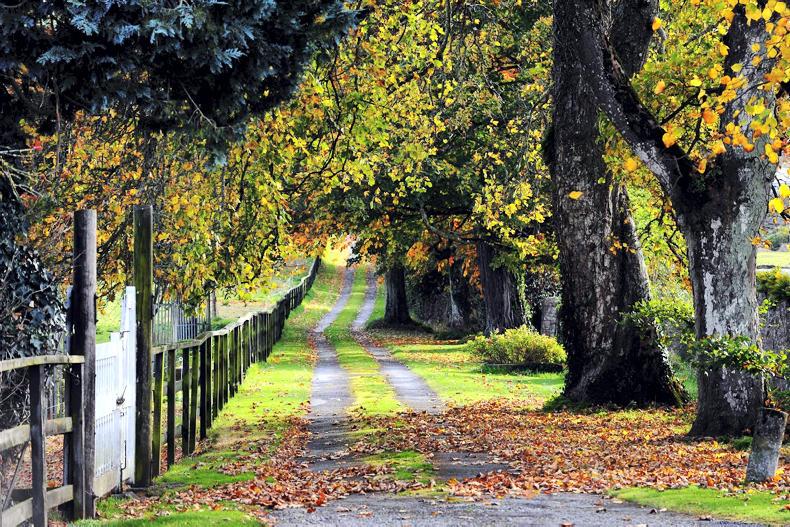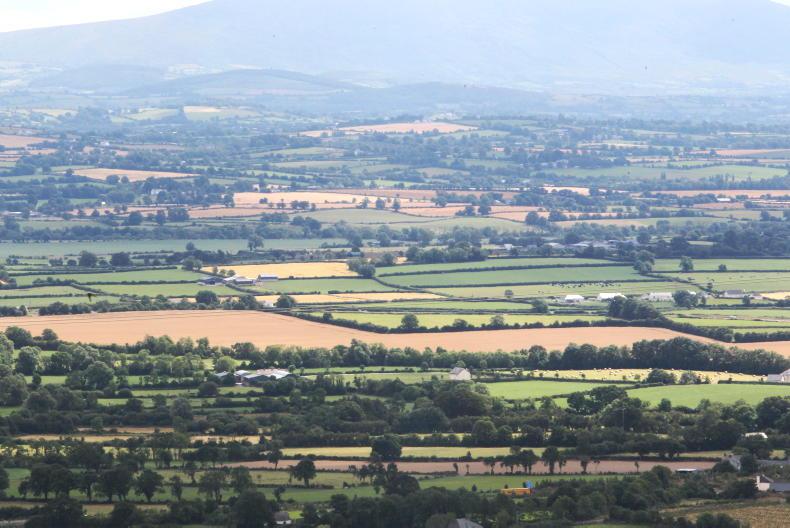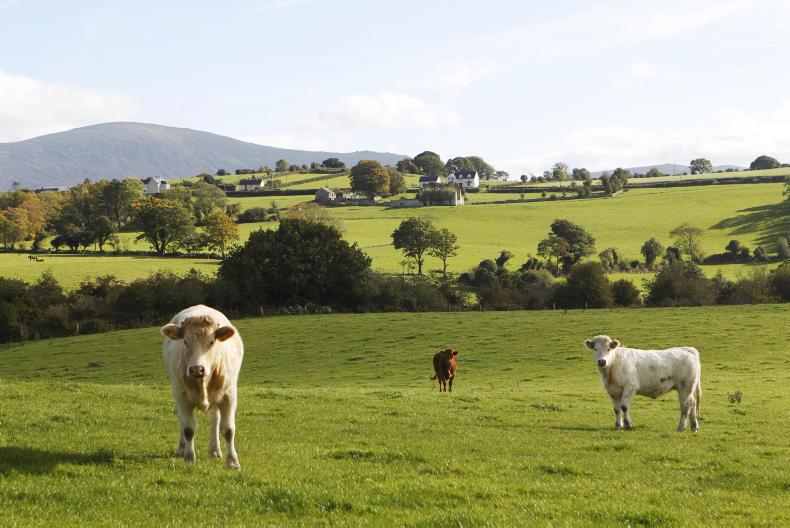“I am planning on building a house on a site on the family farm.
I am currently living at home but am due to get married later this year so want to get the site transferred and building started this summer.
I am due to be gifted/inherit the family farm in the coming years. How will the site transfer affect this?
Would it be more tax efficient to have the site put into our joint names or my fiancée’s name?
The first point worth highlighting is that you could potentially qualify for the income tax rebate for first time buyers worth up to €20,000.
I would urge you to apply for this as soon as possible as our new Housing Minister Eoghan Murphy has indicated that he may pull the scheme before its scheduled cessation in 2019 given that it has been partially blamed for the rapid increase in house prices over the past number of months.
Tax implications of transfer of site
There are generally three taxes that need to be considered when transferring the site:
Capital Gains Tax
There is an exemption available called transfer of a site from a parent to a child. In order to qualify for the relief so that no CGT applies, the transfer of the site must be from a parent to a child and the transfer must be for the purpose of the child being able to construct their principal private residence on the site.
The relief refers to a “child of the parent”, thus why the site needs to be transferred into your sole name, but the mortgage can be got in both names provided your fiancée/wife gets independent legal advice before signing up to the mortgage.
You can arrange to transfer the site and house over to her at a later point and it will not give rise to a clawback.
Capital Acquisitions Tax
Currently, a child can be gifted or inherit €310,000 tax-free from their parents during his/her lifetime.
If the child qualifies for agricultural relief, the taxable value of the gift or inheritance of agricultural property is reduced by 90%; consequently, a child can be gifted/inherit up to €3,100,000 of agricultural property tax-free during the child’s lifetime.
A site is unlikely to qualify for agricultural relief, thus is taxable in full but the value can be set off against the €310,000 tax-free threshold.
This will reduce the tax-free amount available for further gifts/inheritances.

Stamp duty
Up to 8 December 2010, stamp duty did not apply where a parent transferred a site to a child, subject to certain conditions.
Up to 31 December 2014, a reduced rate of 1% applied for transfers of sites between blood relatives known as consanguinity relief.
Consequently, for present-day transfers the full rate of stamp duty on non-residential property being 2% applies.
This is payable within 30 days of the date of the deed of transfer.
Legal implications of transfer
You and your parents will need to be independently advised by your respective solicitors in relation to the site transfer. If you are getting a residential mortgage, your solicitor can act for you and the bank in putting that in place.
To save time and expense, it would be worth having the legal documentation to have the site transferred and the mortgage documentation signed at the same time. Consequently, you should contact your bank and ask them to forward the mortgage pack to your solicitor so that they have it available when you attend him/her to have the site transfer documentation signed up.
For the site transfer, you will need to furnish your solicitor with a land registry compliant map of the site to be transferred, as marked out by an engineer. If the site does not bound a public road, the engineer will have to mark out a right of way to get to that site on the same map. You should ensure that the map of the site encompasses whatever other services are required, eg septic tank, percolation area, water supply to a well if necessary.
You will also need to get a valuation of the site, both for the bank as part of the mortgage and also to ascertain how much tax if any is due arising from the site transfer. The bank will provide you with a list of their approved valuers and you will need to instruct a valuer from that list.
Tax rebate for first-time buyers
The Help-to-Buy incentive was introduced to help first-time buyers of newly built homes to fund the deposit required. It consists of a rebate of income tax paid over the previous four years. To qualify for the scheme, applicants must take out a mortgage of at least 70% of the purchase price (or, for a self-build, 70% of the valuation approved by the mortgage provider).
For new homes costing up to €400,000, a rebate of up to 5% of the purchase price will be available, with the maximum relief being €20,000. To claim the relief, you must be a first-time buyer, buy or build a house between 19 July 2016 and 31 December 2019 and live in the property as your main home for five years after you buy or build it.
You must draw down the first part of your mortgage on or after 19 July 2016 if you are self-building.
This incentive is intended to apply with effect from 19 July 2016 and will run until the end of 2019 subject to my comments about the threat of the scheme being axed above.
Further information in relation to applying for the incentive is available by clicking here.
Read more
Farm tax - putting the power in your hands
Farm at risk from the Fair Deal Scheme
€25,000 tax credit available for farm transfers
Promise of property under a will
“I am planning on building a house on a site on the family farm.
I am currently living at home but am due to get married later this year so want to get the site transferred and building started this summer.
I am due to be gifted/inherit the family farm in the coming years. How will the site transfer affect this?
Would it be more tax efficient to have the site put into our joint names or my fiancée’s name?
The first point worth highlighting is that you could potentially qualify for the income tax rebate for first time buyers worth up to €20,000.
I would urge you to apply for this as soon as possible as our new Housing Minister Eoghan Murphy has indicated that he may pull the scheme before its scheduled cessation in 2019 given that it has been partially blamed for the rapid increase in house prices over the past number of months.
Tax implications of transfer of site
There are generally three taxes that need to be considered when transferring the site:
Capital Gains Tax
There is an exemption available called transfer of a site from a parent to a child. In order to qualify for the relief so that no CGT applies, the transfer of the site must be from a parent to a child and the transfer must be for the purpose of the child being able to construct their principal private residence on the site.
The relief refers to a “child of the parent”, thus why the site needs to be transferred into your sole name, but the mortgage can be got in both names provided your fiancée/wife gets independent legal advice before signing up to the mortgage.
You can arrange to transfer the site and house over to her at a later point and it will not give rise to a clawback.
Capital Acquisitions Tax
Currently, a child can be gifted or inherit €310,000 tax-free from their parents during his/her lifetime.
If the child qualifies for agricultural relief, the taxable value of the gift or inheritance of agricultural property is reduced by 90%; consequently, a child can be gifted/inherit up to €3,100,000 of agricultural property tax-free during the child’s lifetime.
A site is unlikely to qualify for agricultural relief, thus is taxable in full but the value can be set off against the €310,000 tax-free threshold.
This will reduce the tax-free amount available for further gifts/inheritances.

Stamp duty
Up to 8 December 2010, stamp duty did not apply where a parent transferred a site to a child, subject to certain conditions.
Up to 31 December 2014, a reduced rate of 1% applied for transfers of sites between blood relatives known as consanguinity relief.
Consequently, for present-day transfers the full rate of stamp duty on non-residential property being 2% applies.
This is payable within 30 days of the date of the deed of transfer.
Legal implications of transfer
You and your parents will need to be independently advised by your respective solicitors in relation to the site transfer. If you are getting a residential mortgage, your solicitor can act for you and the bank in putting that in place.
To save time and expense, it would be worth having the legal documentation to have the site transferred and the mortgage documentation signed at the same time. Consequently, you should contact your bank and ask them to forward the mortgage pack to your solicitor so that they have it available when you attend him/her to have the site transfer documentation signed up.
For the site transfer, you will need to furnish your solicitor with a land registry compliant map of the site to be transferred, as marked out by an engineer. If the site does not bound a public road, the engineer will have to mark out a right of way to get to that site on the same map. You should ensure that the map of the site encompasses whatever other services are required, eg septic tank, percolation area, water supply to a well if necessary.
You will also need to get a valuation of the site, both for the bank as part of the mortgage and also to ascertain how much tax if any is due arising from the site transfer. The bank will provide you with a list of their approved valuers and you will need to instruct a valuer from that list.
Tax rebate for first-time buyers
The Help-to-Buy incentive was introduced to help first-time buyers of newly built homes to fund the deposit required. It consists of a rebate of income tax paid over the previous four years. To qualify for the scheme, applicants must take out a mortgage of at least 70% of the purchase price (or, for a self-build, 70% of the valuation approved by the mortgage provider).
For new homes costing up to €400,000, a rebate of up to 5% of the purchase price will be available, with the maximum relief being €20,000. To claim the relief, you must be a first-time buyer, buy or build a house between 19 July 2016 and 31 December 2019 and live in the property as your main home for five years after you buy or build it.
You must draw down the first part of your mortgage on or after 19 July 2016 if you are self-building.
This incentive is intended to apply with effect from 19 July 2016 and will run until the end of 2019 subject to my comments about the threat of the scheme being axed above.
Further information in relation to applying for the incentive is available by clicking here.
Read more
Farm tax - putting the power in your hands
Farm at risk from the Fair Deal Scheme
€25,000 tax credit available for farm transfers
Promise of property under a will











SHARING OPTIONS